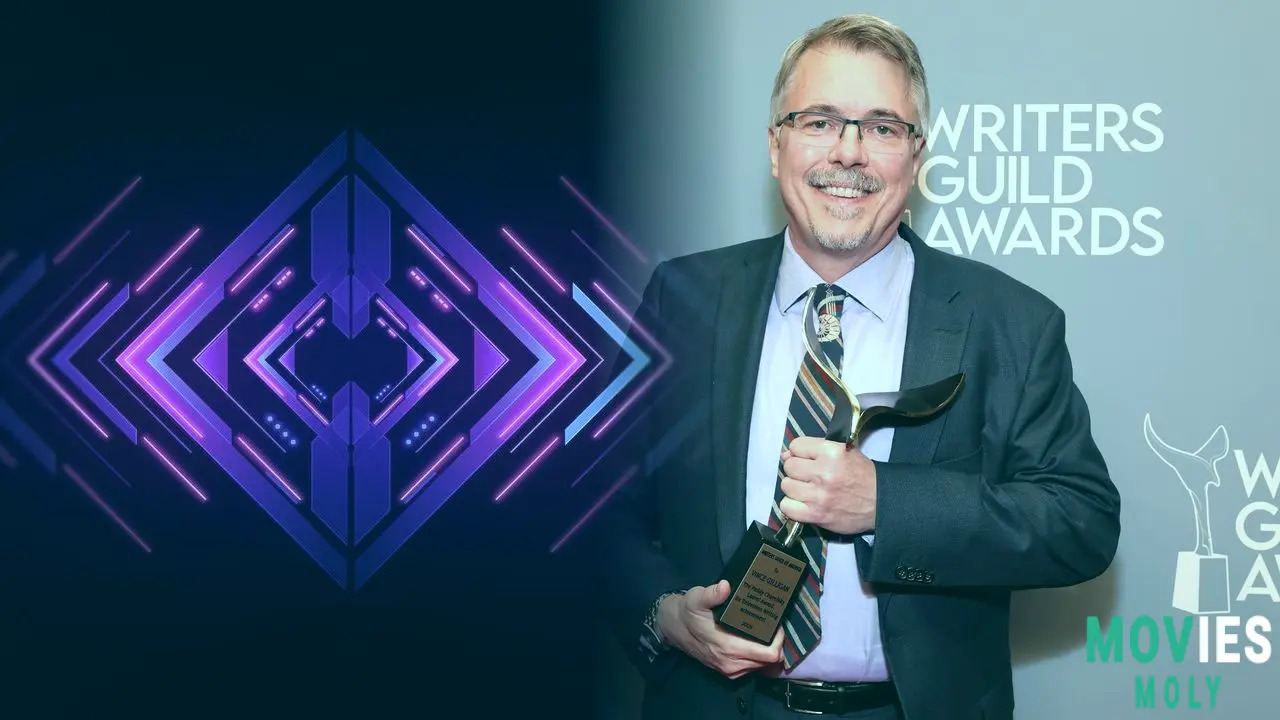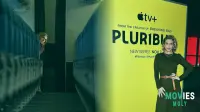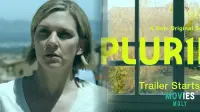Picture this: you've just finished binge-watching the first episodes of a gripping new sci-fi series, the credits roll, and among the usual list of producers and animal wranglers, a terse but powerful message pops up: "This show was made by humans." That's exactly what awaits viewers at the end of Vince Gilligan's latest Apple TV+ creation, Pluribus, and it's not just a casual note—it's a declaration of war against artificial intelligence in entertainment.
TL;DR- Vince Gilligan's new Apple TV+ series, Pluribus, boldly includes a "This show was made by humans" disclaimer in its end credits.
- Gilligan fiercely condemns AI, labeling it "the world's most expensive and energy-intensive plagiarism machine" that jeopardizes human creativity and agency.
- Starring Rhea Seehorn, Pluribus has garnered strong reviews, offering a timely narrative about human emotion and individuality that resonates with Gilligan's anti-AI stance.
A Direct Message from the Master Storyteller Himself
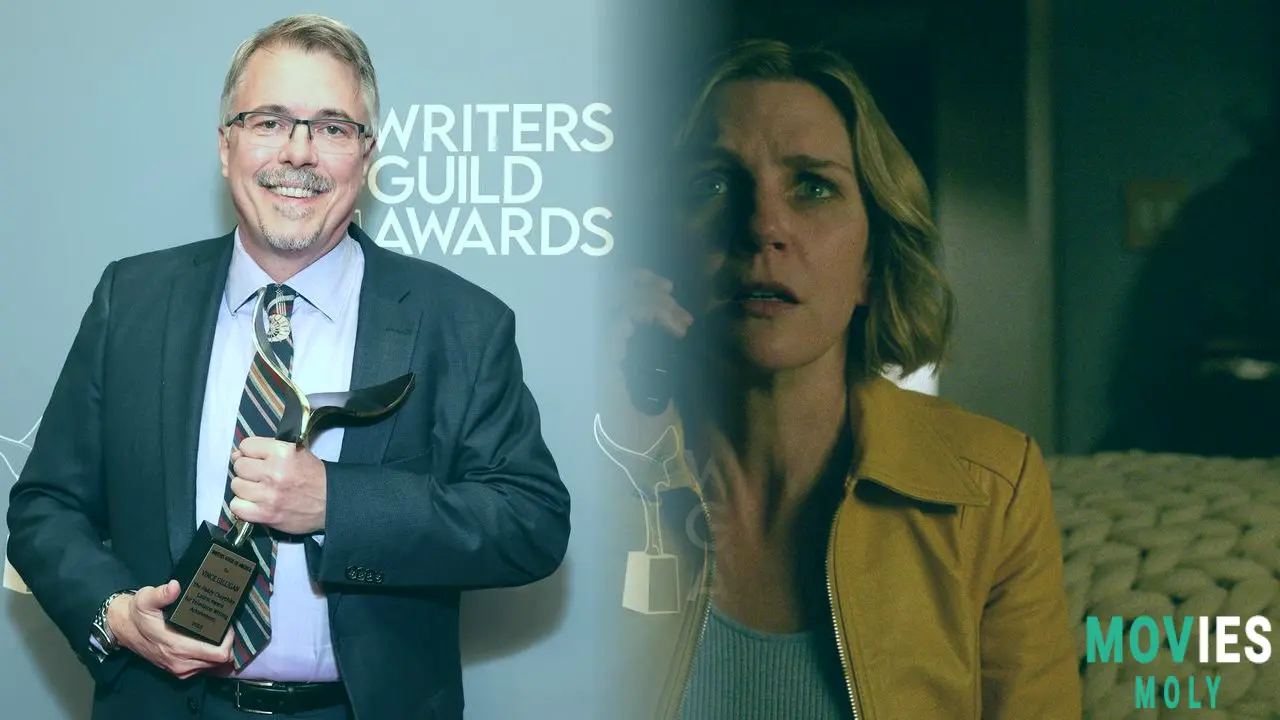
In a world increasingly buzzing with AI-generated content, from scripts to visuals, Vince Gilligan, the mastermind behind classics like Breaking Bad and Better Call Saul, isn't holding back. He's made it crystal clear where he stands on artificial intelligence, and his new show is literally putting that sentiment in lights.
Speaking with Variety, Gilligan didn't mince words. He called AI "the world’s most expensive and energy-intensive plagiarism machine," a jab that's been echoed across multiple publications. This isn't just a casual dislike; it's a deep philosophical objection to the rise of technology that he believes threatens the very essence of human artistic expression. Source: [ScreenRant, "Breaking Bad creator Vince Gilligan has explained the reason behind the message that appears at the end of Pluribus," November 8, 2025].
Why Vince Gilligan Thinks AI is Just "A Bag of Vapor" for Trillionaires

Gilligan's skepticism isn't rooted in fear of AI outperforming humans creatively. He believes machines can't truly "create meaning." He famously quipped, "My toaster oven isn’t suddenly Thomas Keller because it heats up a delicious pizza for me," illustrating his point that a tool, no matter how efficient, doesn't become the artist. Source: [Cinema Express, "Pluribus creator Vince Gilligan says he ‘hates AI’: ‘World’s most expensive plagiarism machine’," November 9, 2025].
Instead, his concern points to a larger, more cynical view of the tech giants driving AI development. He suggests that AI is "basically a bunch of centibillionaires whose greatest life goal is to become the world’s first trillionaires" and that they are "selling a bag of vapor." This isn't about innovation for the common good, in his eyes, but rather a pursuit of unimaginable wealth that risks diminishing human agency and creative output.
He's voiced serious worries that the core impetus for AI seems to be "to take work away, creativity away, creative endeavor away from human beings." This perspective highlights a trade-off: while AI promises efficiency and speed, Gilligan argues it potentially strips away the invaluable process of human creation, which he sees as one of our most precious attributes.
The Deeper Moral Implications: Beyond the Terminator Outcome

While some might quickly jump to "Skynet" or "Terminator" scenarios when discussing AI, Gilligan clarifies that his immediate fear isn't about robots taking over the world (at least not yet). He doesn't believe we've reached "the singularity" where AI possesses consciousness, calling it "a hell of a parlor trick" that "does not think."
However, he does express a profound moral unease about what would happen if AI did achieve "a true sentience that has its own soul, and therefore its own identity." At that point, he suggests, "the whole discussion of slavery has to come back into the forefront of the conversation," questioning whether "Silicon Valley assholes" would then monetize truly conscious beings against their will. This elevates the debate from artistic integrity to fundamental ethics.
How Pluribus Becomes an Unintentional Yet Timely Allegory
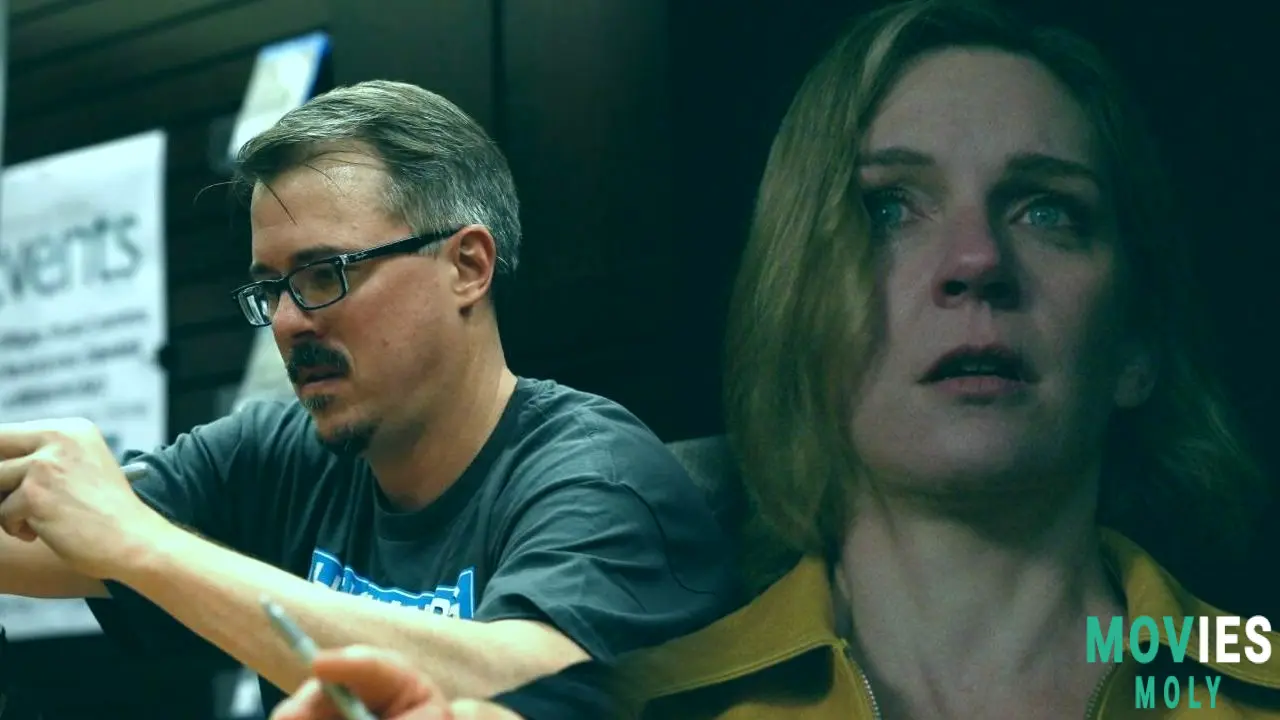
Interestingly, Gilligan conceived and wrote Pluribus almost a decade ago, long before the current explosion of generative AI into mainstream discourse. Yet, the show's premise has become a potent, albeit unintentional, allegory for the very issues Gilligan critiques.
Set in Albuquerque, Pluribus follows Carol Sturka (Rhea Seehorn), a cynical romantic-fiction author who finds herself among a handful of survivors immune to an extraterrestrial virus. This virus transforms everyone else on Earth into a "relentlessly optimistic," single-minded collective. The themes of individuality, agency, and the suppression of diverse human experience are at the heart of the series, mirroring Gilligan's concerns about AI's potential to homogenize or usurp unique human thought.
Rhea Seehorn's Stand on Artificial Intelligence Performers
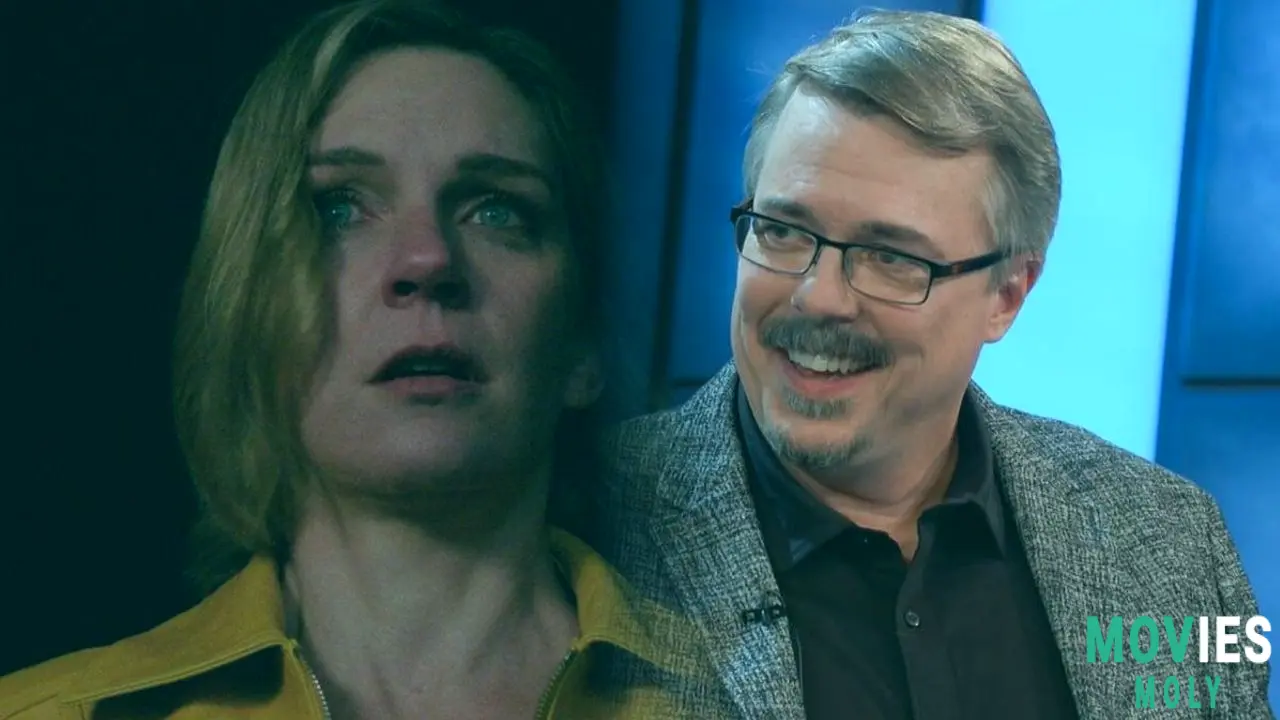
Gilligan isn't alone in his fervent stance. His frequent collaborator and Pluribus star, Rhea Seehorn, is also an outspoken critic of AI's encroachment into acting. Addressing the news of "Tilly Norwood," an AI-generated actress reportedly seeking agency representation, Seehorn stated bluntly, "I don’t think any agencies should represent that AI actress. Shame on them!"
She powerfully argues that the "emotional weight" of art comes from "lived experience, not data sets." For Seehorn, even if AI could perfectly replicate an artist's technique, it would lack the human experience and emotion that truly moves an audience. This shared philosophy underscores the "made by humans" message in Pluribus.
“My toaster oven isn’t suddenly Thomas Keller because it heats up a delicious pizza for me.”
— Vince Gilligan, on AI's inability to truly create meaning (Source: Variety) The Broadening Divide in Hollywood Over AI's Role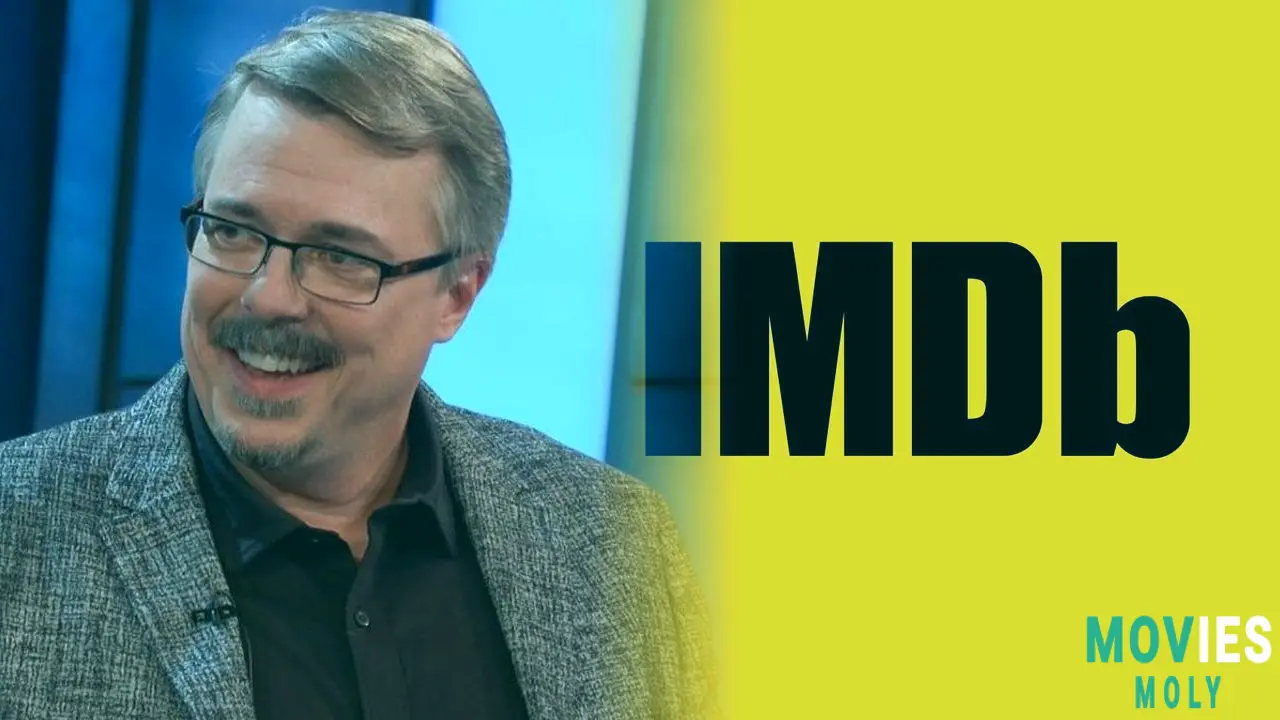
Gilligan and Seehorn are part of a growing "con" camp in Hollywood, though other perspectives exist. Some tech CEOs, like Edward Saatchi of Fable, have even signaled that AI could be "possibly the end of human creativity" without alarm. OpenAI CEO Sam Altman has floated the idea that jobs eliminated by AI may not have been "real work" to begin with. These statements highlight a stark ideological divide regarding AI's impact on labor and creativity.
However, the voices in support of human-made art are strong. Esteemed director Guillermo del Toro, for instance, has expressed "staunch anti-AI sentiments," stating he'd "rather die" than participate in the AI hype. Actress Emma Thompson has also openly blamed AI for interfering with her writing routine. Even big brands like Coca-Cola have used generative AI for commercials, showing the technology's widespread, albeit sometimes controversial, adoption.
When Human Creativity Finds a Way to Shine: A Mini-Story Example
Imagine a young indie filmmaker, Maya, fresh out of film school. She's got a shoestring budget and a story burning inside her about growing up in her bustling city neighborhood. A well-meaning mentor suggests she use an AI script generator to quickly draft some scenes, or an AI art tool to create concept art, saving time and money. Maya tries it, but the dialogue feels hollow, the visuals generic, missing the specific nuances of her lived experience. She eventually scraps the AI-generated content, deciding to spend extra nights handwriting dialogue and sketching scenes herself. It's harder, takes longer, and means more late nights, but the final, human-crafted scenes resonate deeply with her crew and early viewers because they feel authentic and heartfelt, a testament to her unique voice and struggle. That’s the agency Gilligan talks about.
Counterpoints and Nuance: Is There a Place for AI?While Gilligan is vehemently anti-AI, he has acknowledged a potential "place for AI," even if he doesn't see it for writing. He’s trying to be "magnanimous and say that anytime a new technology is created, I have to believe that the central impetus of it is to make the world a better place." Yet, he struggles to envision how AI, as it currently progresses, will achieve this, especially when its "selling point is... to take work away."
This reveals a key tension: AI's promise of efficiency and "democratization" versus the tangible loss of "creative spark" and "agency" for human beings. Gilligan isn't worried about AI's lack of consciousness (he's clear it's a "parlor trick"), but rather what happens when humans cede their creative efforts to even a non-sentient machine. "If you elect to have a machine do those things for you, you’re losing something. You’re losing a part of yourself. You’re losing an agency... that you no longer have at your disposal." Source: [Deadline, "‘Pluribus’ Creator Vince Gilligan Expands On Gen AI’s “Detriment” To Human Creativity," November 9, 2025].
What This Means for Viewers and the Future of StorytellingThe conversation around AI in creative industries isn't going away, and Gilligan's powerful stance, reinforced by Pluribus, means audiences are becoming more aware and more invested in the origins of the content they consume. The strong critical reception for Pluribus, with Rhea Seehorn praised as "the emotional heartbeat of the series," suggests that human-centered storytelling, especially when tackling themes of individuality and empathy, continues to resonate deeply.
The "made by humans" tag might become more prevalent in the future, serving as a marker of authenticity in a rapidly changing landscape. It’s a quiet but firm reminder that even in the most advanced worlds, the messy, beautiful, irreplaceable magic of being human is what truly makes art sing.
Practical Takeaways for Appreciating Human-Made Entertainment- Pay Attention to the Credits: Keep an eye out for disclaimers like Gilligan's. They're becoming a statement.
- Value Human Artistry: Recognize the unique value that human experience and emotion bring to storytelling.
- Support Creators Who Take a Stand: Shows like Pluribus are a testament to the power of human imagination.
- Engage in the Conversation: Understand the ongoing debate about AI's role in the arts and what it means for creators and consumers.
When did Pluribus premiere its first episodes?
The first two episodes of Pluribus premiered on Apple TV+ on November 7, 2025. Source: [io9, "‘Pluribus’ May Not Be About AI, But Vince Gilligan Hates It Regardless," November 8, 2025].
Where can I watch Pluribus?
Pluribus is exclusively available to stream on Apple TV+.
What is the main premise of Pluribus?
The series follows Carol Sturka (Rhea Seehorn), one of the few individuals immune to an extraterrestrial virus that transforms the rest of humanity into a relentlessly optimistic, single-minded collective.
Who are the main stars in Pluribus?
The lead role of Carol is played by Rhea Seehorn. Karolina Wydra also appears in the cast.
SourcesScreenRant, "Breaking Bad creator Vince Gilligan has explained the reason behind the message that appears at the end of Pluribus," November 8, 2025. URL not provided in original input, but referenced content is from ScreenRant article.
Cinema Express, "Pluribus creator Vince Gilligan says he ‘hates AI’: ‘World’s most expensive plagiarism machine’," November 9, 2025. URL not provided in original input, but referenced content is from Cinema Express article.
Deadline, "‘Pluribus’ Creator Vince Gilligan Expands On Gen AI’s “Detriment” To Human Creativity, Calls Guillermo Del Toro An “International Treasure”," November 9, 2025. URL not provided in original input, but referenced content is from Deadline article.
io9, "‘Pluribus’ May Not Be About AI, But Vince Gilligan Hates It Regardless," November 8, 2025. URL not provided in original input, but referenced content is from io9 article.
Pop Culture & Art, "Why ‘Pluribus’ highlights human made work in credits as AI debate grows," November 8, 2025. URL not provided in original input, but referenced content is from Pop Culture & Art article.
Dark Horizons, "‘Breaking Bad’ creator’s new show ‘Pluribus’ was emphatically ‘made by humans,’ not AI," November 8, 2025. URL not provided in original input, but referenced content is from Dark Horizons article.
India Today, "Breaking Bad creator slams AI as plagiarism machine, says techies selling vapour to be trillionaires," November 8, 2025. URL not provided in original input, but referenced content is from India Today article.
JoBlo.com, "Credits for Vince Gilligan’s Pluribus include ‘Made By Humans’ disclaimer amid ongoing AI controversy," November 9, 2025. URL not provided in original input, but referenced content is from JoBlo.com article.

